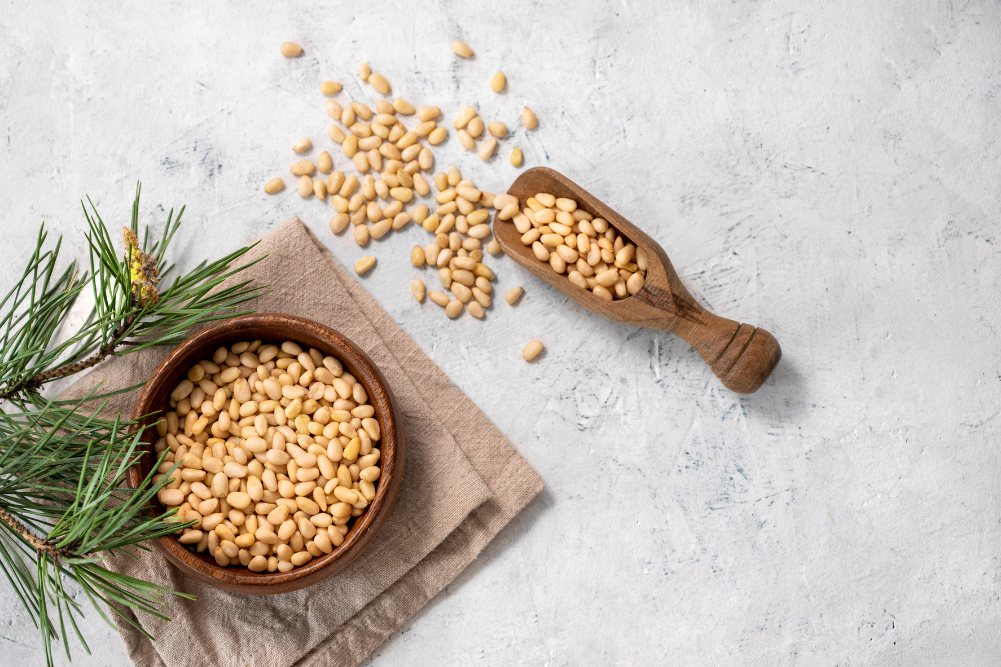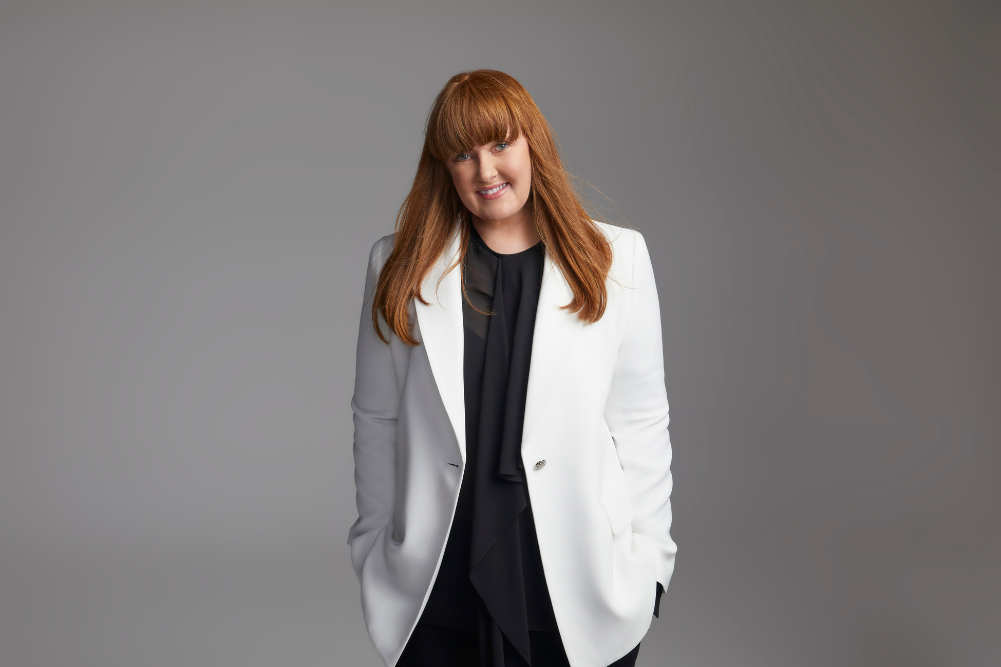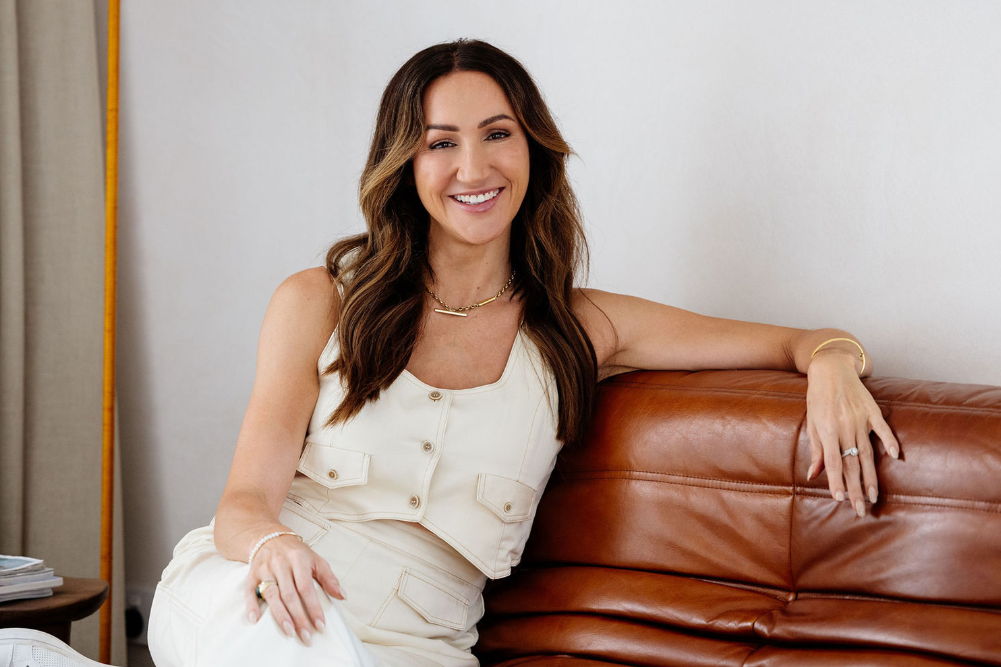Discover Natalie Cunningham’s Indigenous Australian fashion label, Emu Designs
Ask Natalie Cunningham to describe herself and she’ll give you a dimpled cheeky smile and say, “Um … soccer mum, school helper and a designer.” In that order.
She is also very modest. This warm and witty 34-year-old has just successfully taken her fashion label Emu Designs to the world stage, at New York Fashion Week.
Cunningham is an award-winning designer and the first Indigenous Australian to be invited to exhibit her label at the coveted event, an international fashion drawcard attracting the who’s who of the global fashion elite. “I was pretty excited to be selected to showcase our Indigenous fashion and designs to the world,” she says.
Each dreamtime story is an intricate tale of family, of life living on the land, and how it’s all interconnected to Mother Earth and nature.
The event was an eye-opener for Cunningham though not quite in the way she’d imagined. The cost of the trip to the Big Apple took a hefty bite out of the family’s savings and Cunningham’s models were the first to sashay up the runway, meaning a lot of the buyers had not even arrived.
“Expectations were high and there was also a lot of pressure,” says Cunningham, who paid thousands in expenses. She and husband Eli ended up in very modest digs while the smooth-talking public relations company that arranged it all clinked glasses of Cristal in the penthouse suite Cunningham had paid for.
The upside, of course, was the opportunity to shine the light internationally on Indigenous art and the ethereal Beauty of Cunningham’s designs. The luxury resort-wear is crafted from eco-friendly 100 per cent silk and the swimsuits from Lycra, in figure-flattering shapes and styles. “I wanted to design something to give women, especially mothers, confidence at the beach in styles to suit every body shape,” she says. “They tuck in some places and push up in others.”
The designs that are digitally printed onto the fabric are Dreamtime stories sourced from Indigenous artists who live in rugged, remote parts of the Northern Territory. Some of them speak only their own dialect, so a mediator has to translate the meaning of each design. Each Dreamtime story is an intricate tale of family, of life living on the land, and how it is all interconnected to Mother Earth and nature.
A stitch in time
Cunningham’s foray into fashion began as a young child, when she meticulously scoured op-shops for preloved, vibrantly coloured fabrics she could pull apart and craft unto unique designs. These days she also teaches others about upcycling and recycling clothing and accessories.
You might say Cunningham’s passion for fashion is in the blood. Her grandmother Hari made clothes for daytime TV soaps in America in the 1980s and her mother Demi also sewed, albeit out of necessity.
“Mum said she hated sewing but struggled to pay the bills, holding down two or three jobs because Dad was always in and out of work,” says Cunningham. Demi would visit shops and copy designer labels like Laura Ashley and Country Road. Not only were the kids nicely decked out, soft furnishings in their Home were also clever knockoffs of designer décor.
While growing up, Cunningham’s family didn’t have a television — but the decision wasn’t driven by lack of money. Her parents wanted her and brother Stevie to create their own fun, so they played sport, climbed trees and immersed themselves in books.
Her mother also wanted Cunningham to spread her wings before settling down. For her 18th birthday, she declined her mother’s offer of a plane ticket to Europe and instead asked for an overlocker and sewing machine. “She wanted me to go and see the world,” she said. “She settled down young and she wanted me to experience more from life.”
Cunningham fine-tuned her sewing skills at TAFE and began crafting a range of fashion pieces but felt confused about what direction she wanted to take in design. Husband Eli helped her find her way back. “He said what I was doing was too broad; I needed to pick one aspect of fashion and then give it 100 per cent,” she says. Cunningham launched Emu Designs in 2006 and hasn’t looked back.
Getting down to business
Cunningham credits her Greek mother Demi, who has established several successful businesses of her own, with giving her the strength and unwavering determination to succeed. “Mum has always been very business orientated and career driven,” she says. “She said never take second best and encouraged me to aim high and set goals for myself.” As a young child, Cunningham often found herself accompanying her mother to business meetings and motivational talks. While most kids would be scribbling in colouring-in books, she was riveted, hanging on to every word.
Cunningham’s father, Nudge, is a talented Indigenous artist from the Biripi and Ngarabal people in Glenn Innes, New South Wales. He picked up a paintbrush later in life, after a truck accident forced him to switch careers, and turned to painting as a form of therapy. These days some of his art is printed on his daughter’s designs.
“I show people that by making a few changes and thinking a bit creatively you can extend the life of an object, or totally reinvent it into something new.”
“My dad’s a real dude; he’s got the walkabout in him and he’s happy,” says Cunningham with a laugh. He gets itchy feet and can’t stay in the one place for a long time. “He might say, ‘I’m going to Tasmania to see my nieces,’ packs up his little dog and tosses a mattress in the back of his car. Then, a few days after he gets there, he’ll be off to Darwin.”
Cunningham’s 31-year-old brother Stevie works as a chef but, when they were growing up, it was clever Natalie who’d be cooking up business Deals. “I used to pay him five bucks to clean my room and dispose of any dead fish in my tank,” she says.
Before Cunningham became a fashion designer, she was a beauty therapist. Her mother founded Demi International Beauty Academy and was eager for her daughter to follow in her footsteps. “I did it for Mum and enjoyed being a beauty therapist but I didn’t feel as though it was for me,” she says. “I know what I’m doing now is. When you’re in the right place or on the right path in life, everything flows more smoothly and falls into place.”
Home sweet home
Cunningham’s story is about spirit and determination but, mostly, it’s about heart and the love of family. Far from the madding crowd in New York City, she and husband Eli, 35, live in the Sunshine Coast Hinterland where they’re raising their three sons: Isaac, 13, Noah, 9, and Kade, 6.
The designer’s chocolate-brown eyes light up with joy and words tumble out in carefree abandon when asked to describe her three boys. “My eldest boy Isaac is very smart and sporty, too. Kade is a little dynamo, full of fun, and also shares his father’s love of making music,” she says. Cunningham describes son Noah as her big-hearted boy. “I was so proud of him on sports day when he was winning a race and his mate fell over, so he turned back to help him.”
Noah’s also the main custodian of the family vegetable patch. Cunningham’s eager to teach her offspring about living green and becoming more self-sufficient — in a world where, she says, we’ve become far too used to jumping in the car and racing around to the shops for what we need. “We need to be more resourceful and grow more of our own food,” she says.
Love, support, community
Natalie and Eli, who is from the Noonuccal people of Stradbroke Island, went to high school together — though, she confesses, they were far from being sweethearts. “I thought he was a bit stuck up; he used to hang out with all the cool kids, the footy crowd,” says Cunningham. “But it turns out he was just shy.”
After hanging up their school bags and joining the workforce, their paths crossed again when they were 17 and they’ve been inseparable ever since.
Cunningham says Eli is her biggest advocate and was “incredibly supportive” when she began her fledgling foray into the world of fashion. “He’s my rock,” she says. “He always believed in me. Even when it’s been difficult and I felt like giving up in the early days, he was always there to offer encouragement.”
When Cunningham talks of family, it’s also about her people — the elders whose wisdom and courage have shaped the community. She has a deep regard for her elders and what they can teach those who come after them. “In our culture, we are very big on looking after our elders. We call them aunties and uncles; there’s a lot of respect.”
In the Indigenous community, respect isn’t limited to other people. Australia’s first citizens had to hunt and forage to survive but underpinning that was a deep reverence for the land. They believed their role was not just simply to take but to live in harmony with nature, to give back and to share its bounty.
For this Sunshine Coast family and their extended community, this sustainability ethos is very much a way of life. “I think everyone can live a greener life,” Cunningham says. “We’re all connected in our community. We give away what we don’t need and we share what we have — it’s really that simple.
“I think the world is becoming selfish. We need to help and support one another more, to want less and to appreciate what we have,” she adds.
Creating & sharing
Cunningham certainly does walk the talk — and goes on walkabout to do it, just a little bit. In an effort to share her knowledge and promote a grassroots shift in thinking towards adopting more sustainable practices, the designer holds recycling/upcycling workshops in Queensland’s capital, Brisbane. She teaches others about how to use a little artistic flair (and a bit of bling) to create something unique.
New made from old has a past, a tale to tell of where it has been, a rich history to share. According to Cunningham, there are endless possibilities you can explore through recycling and upcycling preloved items. “I show people that by making a few changes and thinking a bit creatively you can extend the life of an object, or totally reinvent it into something new,” she says.
A current project is taking preloved clothes and turning them into a collection of handbags — all from items of clothing that are no longer wanted.
“I wanted to design something to give women, especially mothers, confidence at the beach in styles to suit every body shape. They tuck in some places and push up in others.”
Cunningham is also involved in NAIDOC week, a seven-day celebration held each year to celebrate the culture, history and accomplishments of Aboriginal and Torres Strait Islanders. It’s about looking back at the past but also embraces the here and now and looks to the future, empowering Indigenous communities and acknowledging their achievements. Cunningham has an active role in organising fashion parades and teaching Indigenous teenage girls about styling hair and applying makeup. “It’s really rewarding, seeing their increase in self-confidence and the difference in how they carry themselves,” she says.
Another project in the pipeline for Cunningham is a way to empower the homeless and the needy. Called a wall of kindness, it’s something she’s seen overseas and would like to introduce here. It involves covering a fence or wall with an array of coathangers and inviting those who have clothes they no longer want or need to hang them up on a hanger to be passed on to others. “That way people can choose what they like, find clothes that suit them and it’s free,” she says. “It’s a hand-up, not a handout. so it gives those who need help a little dignity.”
As for her own clothing, Cunningham now has her sights set on taking her designs into the tourist hotspots of Australia to promote not only her label but also Indigenous culture to the rest of the world. “Indigenous Australians have a voice and we want it to be heard,” she says. “Our culture is so old and our stories need to be told. They are part of Australian history.”








